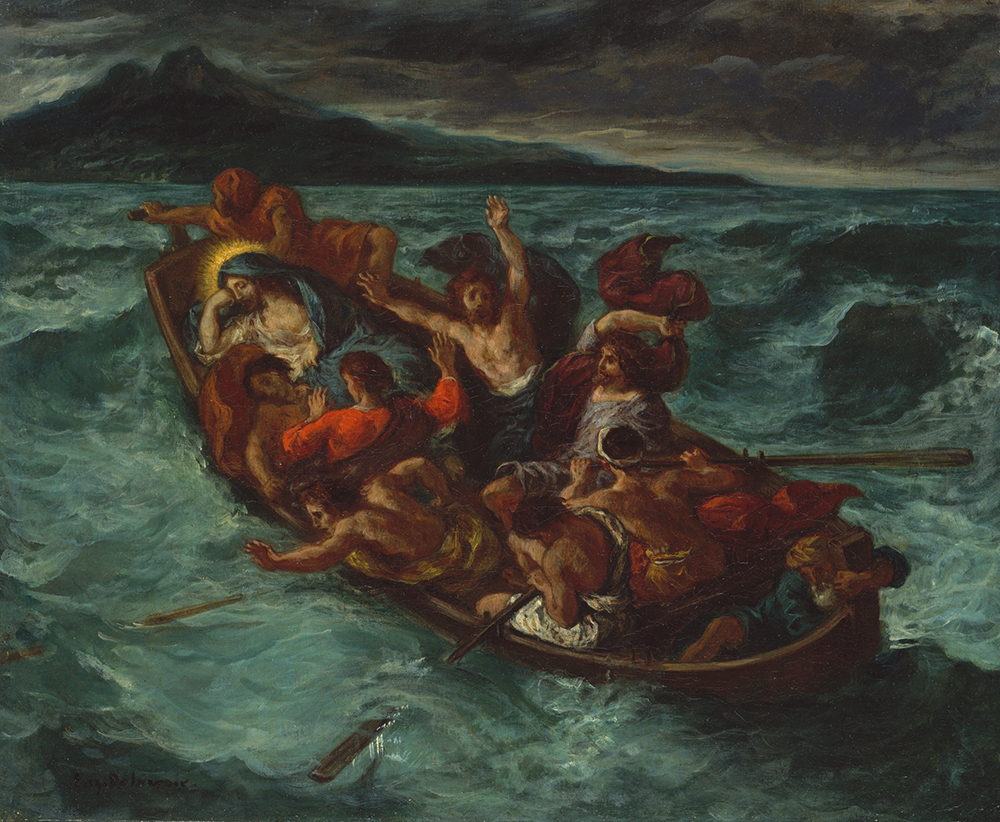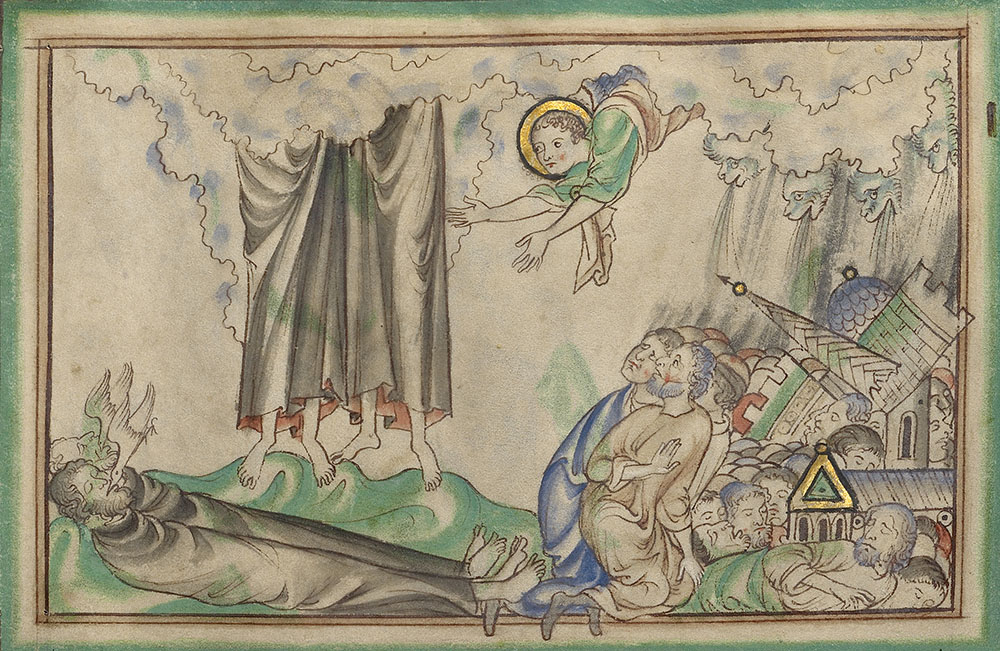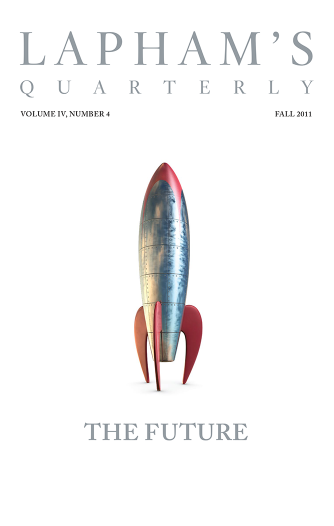People living deeply have no fear of death.
—Anaïs Nin, 1935
Christ in Limbo, by a follower of Hieronymus Bosch, c. 1575. © Martha Delzell Memorial Fund / Bridgeman Images.
On a Monday evening in October, the power went down in Johannesburg. Eskom was load shedding, reducing the electricity demand through a series of controlled blackouts, and our suburb was on the list. For some time the power utility had been struggling to keep the lights on. There was a schedule of outages online but we’d forgotten all about it.
Even when it’s anticipated, the sudden darkness will knock every plan askew and make the simplest task difficult. We have torches and candles and our computers will run on battery for a few hours (although there’s something disconcerting about a bright screen in flickering candlelight). If a deadline is pressing, I sometimes put on my headlamp from the camping store and sit at my desk like a forlorn miner looking into the small pool of light on the page. Not tonight.
“I’ll find some candles,” Minky said. But the drawer where we kept them held no more than a couple of tea lights
Meanwhile, I was playing the light from my cell phone over the shelves in the fridge. Everything needed cooking. “Looks like it’s either corn flakes or a restaurant.”
We went in search of a hot meal.
Using a torch, we picked our way down the staircase to the garage and drove out. The guard stepped from the hut at the end of the drive and pushed the electric gate open on its rail.
“The power is gone,” he said to us.
“Yes,” I had to agree, “the power is gone. I wonder when it will come back?”
He shrugged his shoulders: Who can say?
Force of habit sent us toward Rosebank, but it was dark there, too. The suburb of Parkview, as we knew from previous experience, is on a different grid and might still have power, so we cut through Saxonwold in that direction. The area is thickly wooded, and the houses among the trees are grand. In the early years of Johannesburg there was a forest here, the Sachsenwald, and it belonged to the mining company of the Stuttgarter Hermann Eckstein. The plantation supplied wooden pitprops for use in mine shafts. When a suburb was laid out in later years, the planners took some guidance from the forest tracks and topography, and so, unusually for this city, the streets are not on a regular grid. The name Sachsenwald was anglicized (saxonized?) during World War I to obscure its German origins.
Between Saxonwold and Forest Town, on land given to the city in 1904 by Eckstein’s company, is the Johannesburg Zoo. The main routes through the suburbs are wrapped around the zoo and overarched by avenues of old trees. On the night of the blackout, the tar was strewn with purple jacaranda blossoms, vivid in the headlights of the car. The enveloping darkness was eerie. Here and there a candle burned in a window, while a single blazing security light showed that a household had acquired its own generator for use in an emergency.
Crime is often on our minds in Joburg. The threat of violence and how to avoid it have shaped the city fundamentally. We live with defenses and precautions, we protect our territory, we find our way from A to B without dawdling. In a blackout, those who can afford such things worry about electric fences, security cameras, burglar alarms that aren’t working; those who can’t, worry about walking down unlit streets and having to unlock doors in the dark.
The history of urbanization is bound up with artificial illumination. Lighting makes cities habitable and governable. As early as the sixteenth century, householders in larger European cities were required by law to keep a light burning outside their door. Proper street lighting was introduced into European cities in the eighteenth century under the control of the police. Even so, the cities of the past were dark and fearful places, and those who could afford to would engage the services of a torchbearer to accompany them from one place to another. In Paris, Wolfgang Schivelbusch writes in Sense of the City, these linkmen were often police spies or informers, while in London they were more likely to be in league with criminals.
The lights were on in Parkview, but the restaurants were closed, as they generally are on a Monday night. Just one little Italian place appeared to be open. Though nearly every parking bay along the street was free, a car guard came out of the shadows and guided us into the spot of his choice. Car guards are our linkmen. They direct you in and out of a space and make sure your car isn’t broken into or stolen while you’re gone. Migrants from West Africa have made the job their own and brought some flair to it. “My name is Phillippe,” this guard said as we took our jackets from the boot. “Your car is in good hands.” Earning his fee and putting down a marker.

Christ Asleep During the Tempest, by Eugène Delacroix, c. 1853. © The Metropolitan Museum of Art, H.O. Havemeyer Collection, Bequest of Mrs. H.O. Havemeyer, 1929.
The restaurant looked closed after all, but peering through the window, we saw a lone woman at a corner table drinking a glass of red wine.
When we pushed the door open, causing a bell to tinkle, a waitress appeared, wiping her hands on a dishcloth. “I’m very sorry,” she said, “we’re actually closed. We wouldn’t be here at all if we didn’t have a private function just now.” She gestured toward a back room past the kitchen.
What about this woman sipping her wine and leafing through the menu? I gave the stranger in the corner a glance, part resentment and part appeal, and she tipped her glass in our direction.
“We’ve been load-shed,” Minky explained. “We’re hungry. And we’ve driven all the way across town.”
“Me too,” said the stranger. “I had just peeled the potatoes for my dinner when the lights went out.”
The waitress hesitated. How could she turn us away now? “Okay then, but you’ll have to be patient. We’re short-staffed, and of course we’ll be focusing on the private party.”
“It’s very kind of you,” Minky said. “We’re really in no hurry.”
The waitress brought bread in a basket, olive oil and salt. We ordered wine and a salad.
When our glasses were full, we raised them to the woman in the corner, but she was busy on her phone.
Just as we began to eat our starter, another couple pushed through the door, relieved to find a meal. Five minutes later the bell tinkled again, and in came a woman and her teenage son. Now it was impossible to turn the newcomers away. The waitress showed them in with a resigned shrug.
The new arrivals, bursting in from the dark, wanted to talk. We swapped load-shedding stories. “Josh had to open the security gate in the driveway by hand,” his mother said. “It was a scary moment.” The boy shifted around in his chair and broadened his shoulders. The couple had come all the way from Oaklands. “Half of Joburg is without power,” they said.
“To Eskom!” we said when everyone had a glass in hand.
“Let there be light!”
Joburgers tend to be wary of strangers, and too much friendliness makes us suspicious. But situations like this bring out the best in us. We love a bit of adversity, we like to feel embattled. When the going gets tough, we draw together. It’s a thread in our national story, our founding myth. Our calamities are all of our own making, we’re seldom at the mercy of the elements—but how magnificent we would be in a flood, in an earthquake! Let the houses fall down, let fire rain from the sky, then you’ll see how we rally to the aid of our neighbors.
The guests arrived for the private party. I recognized a couple of academics, a political commentator with a show on television. Then two men ushered in a white-haired gentleman in a black coat. He must be the guest of honor. They disappeared into the back room.
“Someone’s father” was my guess.
“That coat wasn’t made in South Africa,” Minky said. “He looks like a New Yorker.”
The street door opened again and a woman we know came in. She works for a research institute and writes an economics column for one of the weeklies. The waitress greeted her and showed her toward the back.
“What’s going on there?” I asked as she passed our table.
“We’re entertaining a distinguished visitor from the U.S. Did you see the guy with the beard? That’s Sam Levitsky, the economist.” And she hurried away to join her guest.
Samuel Levitsky. The future Nobel Prize winner, if the papers are to be believed. Author of an influential book on narrowing the gap between rich and poor.
“I wonder what he makes of this unequal city,” I said, “of its poor and powerless?”
“He wants it to be different,” Minky said, “as we do.”
“True, he’s been saying so for thirty years. He’s sticking to his guns.”
The main course came. Minky’s melanzane was good, but my chicken was overcooked. I sawed it into pieces with my steak knife without complaint. They’re doing us a favor, I thought. And there are many people in this city who go to bed hungry at night, people who never have electricity, who never eat in restaurants. The world is a miserable place when you’ve got no money. You don’t need Professor Levitsky to tell you that. Sam? It didn’t seem right.
Fear is the foundation of most governments.
—John Adams, 1776In any event, there was a convivial atmosphere in the restaurant now. All through the meal, we were swapping notes with the people at the other tables. “The veal limone is superb.” “Did you try the cassata?” “We didn’t know this place was here,” said the man from Oaklands, “but we will be back. We’ll bring our friends.”
One by one, the other guests paid their bills and left, with sardonic greetings and good wishes. “This place!” “At least it gets you out of the house.” “Take care on the road!” We lingered over our decaf coffees and listened to the burble of voices from the back room, the occasional burst of laughter.
Phillippe was waiting outside the door. He walked us to the car and pocketed the tip without looking at it.
On the edge of Parkview the streetlights ended, and we drove back into the woods. It had rained while we were eating and the trees were dripping. Everything was dark and gleaming and full of mystery. Once, a walker turned into a side street as we approached, but when I glanced that way the pavement was empty. The streets had the quality Andrei Bely saw in St. Petersburg: they transformed passersby into shadows.
We crossed Jan Smuts Avenue into Forest Town and curved around the zoo. As our headlights swept the concrete slats of the perimeter fence, Minky thought she saw eyes glinting in the undergrowth. Sometimes when you walk past here, as we do on a Sunday afternoon, you might be lucky to glimpse a cheetah or a leopard in its enclosure. The proximity of the animals is not comforting: there is nothing snug about a wild creature in a cage.
South African writers have often been drawn to the captive animal as a symbol of repressed or domesticated wildness—and to the wild or escaped animal as a symbol of threat. In Peter Wilhelm’s “Lion” and Nadine Gordimer’s “Something Out here,” the suburbs are haunted by such creatures. But these stories were written decades ago. The most troubling image in Henrietta Rose-Innes’ recent novel Green Lion is not the last black-maned lioness, which escapes from its cage on the slopes of Table Mountain, but the dead one of the title, a mangy stuffed exhibit in a glass display case.
Tonight the zoo felt at peace. Under the common blanket of the darkness, it seemed less like a prison camp than another suburb, whose inhabitants were sleeping soundly for a change.
The experts who offer advice on surviving in dangerous cities agree that you are at your most vulnerable when you arrive home. You must resist the anticipatory pleasure and relief that overtake you as you approach your own house. Do not let your guard down. Now especially you need to be more vigilant than ever. On this night, even though we knew there’d be a watchman at the gate, the old unease returned. The fear of arrival.

The Removal of the Two Witnesses and the Destruction of the City, miniature from the Dyson Perrins Apocalypse, c. 1260. © The J. Paul Getty Museum, Los Angeles; digital image courtesy of the Getty’s Open Content Program.
At the junction near the war memorial we hesitated. The lights would come on in an hour or two, tomorrow morning at the latest. For now, we did not want to go home. Instead of turning off toward the flat, we carried on around the zoo and drifted through the tree-lined avenues of Saxonwold with their beautiful woody names: Beechwold, Englewold, Ashwold.
The unaccustomed stillness was a relief. Although the darkness pressed down on the trees, the empty streets felt safer than usual. The road, as Gaston Bachelard suggests, invites us to come out of ourselves, to leave the spaces in which we are safely and happily housed.
We seemed to have driven back into the past. Many of the houses were invisible behind high walls, but here and there a dimly illuminated glass aerie or gilded dome showed above a parapet. In a window lapped by a vast lawn, a hurricane lamp was burning. A guard came out of a gaslit sentry box to gaze at us as we rolled past.
“He thinks we’re up to no good,” I said.
“He’s just keeping watch.”She raised a hand and he returned her greeting with a small salute.
“Home?”
“Not yet.”
